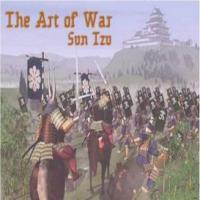
AoW
One of the greatest strategy books ever written is Sun Tzu's "The Art of War".
My goal is to ultimately design a system based on this tome that can be used with every move in a game of chess.
The initial layout is based on the Five Constant Factors (Ch 1:4). Sun Tzu states that if you adhere to these 5 factors better than your opponent you will always win.
The first of the 5 Constant Factors is called The Moral Law. It is defined as:
discipline -- the ability to act properly regardless of the situation
It is simply the resolve not to engage in any of the 5 Dangerous Faults:
1) Recklessness -- Striking without forethought
2) Cowardice -- Fear of attacking
3) Hasty Temper -- Acting emotionally
4) Delicacy Of Honor -- An exaggerated sensitivity to battle conditons (which prevents proper tactics)
5) Over-Solicitude For One's Forces -- Being unwilling to seize an advantage or abandoning an advantage (due to concern over material loss)
Sun Tzu points out that losing will always be caused by one of these 5 faults and thus if you do not engage in any of them you will have won the victory of The Moral Law.
This victory is essential to winning any game and must be combined with the 4 other Constant Factors which will be detailed in following posts.
In the Art Of War, Heaven can be summarized as the general battle conditions (as opposed to the specific pitch of the battle which is Earth).
Therefore, adhering to the Moral Law of Heaven can be accomplished by looking at the board in a general way; stepping back and stripping away all but the main pieces to get an idea of where the general focus is for both our opponent's pieces and our own.
Perception is an essential key of understanding and our ability to perceive the board in different ways is extremely helpful in revealing potential tactics in any chess position. GM Andrew Soltis points this out in his wonderful book "The Inner Game Of Chess: How To Calculate and Win" ( )*.
He says, "Sometimes you have to visualize the simplest situations of the board, mentally stripping away all but two or three key pieces, in order to 'get it'":

GM Andrew Soltis continues, "This looks like a complicated position but it isn't. Strip away two pieces and the game is almost instantly over."
[SOLUTION] The key here is see how the light squared bishop and d-file rook are virtually cutting the king completely off and the rest just falls into place with (editor's note): Ng6+! hxg6 Bc5+!
GM Andrew Soltis continues, "With these two pieces gone, White's h1-rook will all but deliver mate on e1."
Viewing the board in a general way (Heaven) is essential to discovering winning offensive and defensive tactics and thus consistently produce winning results.
In The Art of War, The Moral Law of Earth can be summarized as: the specific pitch of the battle (as opposed to the Moral Law of Heaven where general battle conditions were examined).
Here we focus on the specific minute details of the position; things like weak squares, overworked pieces, unprotected pieces, trap patterns and mating patterns.
It is through these considerations that the strategic ideas for our attack will manifest themselves.
Sun Tzu is very clear:
Those who take the time to examine the advantages derived from the specific pitch of the battle (Earth) will win over those who do not and whoever adheres to the Moral Law Of Earth the best will ultimately be victorious.
The fourth Moral Law is The Commander which is defined as: A sincere and genuine attitude which manifests itself as discipline.
In order to properly adhere to the Five Constant Factors we have to be truly willing to apply Sun Tzu's principles which require strenuous effort.
Without a sincere attitude we are in danger of acting improperly through laziness or impatience.
The final Constant Factor is Method & Discipline and is defined as: strategic/tactical design.
This is where we calculate specific moves and variations within the game. Sun Tzu says the General that makes few or no calculations loses but that many calculations lead to victory.
Calculation is defind by GM Andrew Soltis as: "...(perceiving) positions that have yet to occur and to recognize the possibilities within those positions."
To develop this skill he recommends playing through GM games blindfolded; specifically following the PGN of the game but moving the pieces in your head. He recommends taking the moves four at a time and then quizzing yourself about the board position; identifying the pawn structure and each of the major pieces (sort of like taking inventory).
